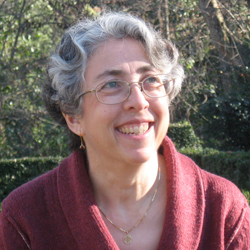Susanna Lang
This winter, the cold and snow began to feel like an assault, as if an ice queen from the old stories had turned her malevolent gaze on the eastern half of the country. Week after week, the temperatures hovered a little below or a little above zero, more snow had to be shoveled, and the wind found every crack in the walls. Our delivery of heating oil was delayed. The schools closed for more days than ever in my 30 years of teaching, but we were locked in by the cold so it didn’t feel like a release.
Then I fell on snow packed slick and shiny as porcelain, and the malice became intensely personal. I broke my right arm above the elbow, requiring surgery. I am strongly right-dominant, and of the generation that only feels comfortable with illegible scribbles for first drafts. I would never leave the house without a notebook and a pen.
On the other hand, while my poetry is not confessional—I don’t find myself endlessly fascinating, so why should anyone else?—I do use writing to work through what troubles and intrigues me. As I have grown older and watched my parents and friends struggle to stay upright, my poems have meditated on loss. When it snowed outside, it snowed in my notebook. I couldn’t imagine getting through this new and excruciating pain without words, but I couldn’t form the words I needed.
Of course, nights were the worst. The pain came in waves, sleep was impossible, and my devoted husband had collapsed in exhaustion after a day of juggling his own work, both our chores, and my needs for a glass of water, more pills, a bath, another ice pack. During the first nights, I counted the hours on my smartphone. I followed developments in Ukraine. I found I could lose myself in the poems that the Academy of American Poets and the Poetry Foundation sent to my inbox (bless them!). Then I discovered that the memo app worked fine for first drafts. I wrote this post in the same way. Typing left-handed was slow, but there’s something to be said for moving slowly. Fewer falls that way.
My students use their phones for every phase of the writing process. They research their papers, they write drafts, they text each other suggestions for revision, and ask me to read their tiny screens. I have always refused. I pleaded ignorance of technology. I pleaded my old eyes. But in the watches of the night, my phone offered a way to travel safely through the pain and the dark. When writing friends suggested that I make my medical leave into a writing sabbatical, I thought they were insensitive. It turned out they were merely sensible. I was the one with a fragment of ice in my eye that kept me from seeing the obvious.
I wrote in my notebook on February 9, the morning of my fall—in fact, at 3:00 am, and I must have turned on the light, despite my sleeping husband. I opened my notebook again on March 16, and found I could write with a pen, but even a page tugged on my elbow, created a strain, the first pangs of what would become intolerable before I’d finished a second page. As we enter April, I am still in physical therapy, though I can write comments on my students’ papers (submitted the old-fashioned way on paper), and I can write on my classroom white board, even the date at the top. Still, my notebook remains on my desk, not in my purse—extra weight—and my newest poem began as a middle-of-the-night draft on the memo app of my phone. I don’t know whether I will continue to write on a tiny screen with a tiny keyboard once (if?) I regain the full use of my right arm. But although I miss the texture and expansiveness of paper, now I think of my notebook as a luxury, not a necessity. Words are the necessity, while the technology—pen or pixel—is only their tool.
 Susanna Lang’s newest collection of poems, Tracing the Lines, was published in 2013 by the Brick Road Poetry Press. Her first collection, Even Now, was published by The Backwaters Press (2008), followed by a chapbook, Two by Two (Finishing Line Press, 2011). Her poems have appeared in journals including Little Star, The Green Mountains Review, The Baltimore Review, Kalliope, and Jubilat; “Migration” is forthcoming in South85 Journal. She lives and teaches in the Chicago Public Schools.
Susanna Lang’s newest collection of poems, Tracing the Lines, was published in 2013 by the Brick Road Poetry Press. Her first collection, Even Now, was published by The Backwaters Press (2008), followed by a chapbook, Two by Two (Finishing Line Press, 2011). Her poems have appeared in journals including Little Star, The Green Mountains Review, The Baltimore Review, Kalliope, and Jubilat; “Migration” is forthcoming in South85 Journal. She lives and teaches in the Chicago Public Schools.